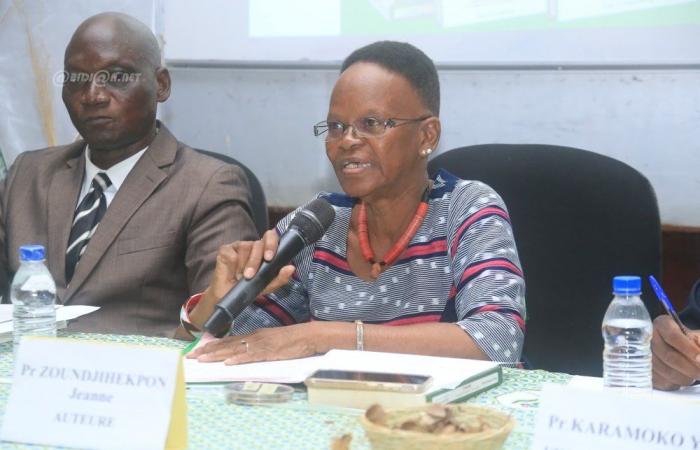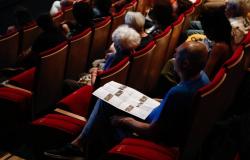
Professor and author of Beninese origin Jeanne G. Zoundjihékpon presented to the members of her corporation the fruits of research on images carried out over several years, on June 28, 2024, during a ceremony organized within the Nangui Abrogoua University of Abobo.
This ceremony, coupled with the dedication of his book entitled “Yam, a noble plant in the plural future”, took place in the presence of several teacher-researchers, university professors and several students.
This research focused on several aspects, including the fruits and flowers of yams grown by planters. Of its 327 pages, prefaced by Professor Karim Dramane, Emeritus Professor of the National Universities of Benin, this book written in collaboration with the late Roland Dumont, agronomist at the Center for International Cooperation in Agronomic Research for Development (CIRAD), contains two main parts, including the first entitled “An ancestral food resource in the process of adaptation to modern agriculture” and the second “introduction of seeds as seeds in the production of yams in West Africa”.
They focus partly on the generalities of yams, yams in West Africa, domestication, agriculture and use of yams in West Africa and the genetic diversity of endangered yams.
The author of the book, Jeanne Zoundjihekpon, said that the objective in writing these lines was to encourage Africans to work and develop their continent as researchers.
Also, she wanted to thank the planters for their support because, according to her, they were a great opportunity to carry out her various projects.
”The development of Africa is based on ourselves. Europeans and Americans will not come to develop Africa for us. Today what I have done, I owe it to the farmers because in fact the farmer, he saw the male and female flowers but he did not know them or their interest. So it is thanks to the farmers that I was able to acquire all this research and I released this book today (…) the main thing at the end of the novel there are technical sheets. You do not have to be a doctor or a bachelor or need to be certified. You have already been to school at the 6th and 5th grade level you can read the technical sheets. I advise you to go to the fields, harvest the fruits, sow them and you continue your work in 4 years or 5 years you can create new types of yams”, advised the professor and author Jeanne Zoundjihekpon.
The Director of the National Center for Agronomic Research of Côte d’Ivoire (CNRA) Dr. Kouakou Amani Michel, in analyzing this book, indicated that “through these passages, we understand the nobility of the yam and its future which is plural through its roles in our traditions and its users who are diversifying. This plural is also justified by the many questions that remain unanswered. This includes understanding the relationships between the genotype and the environment for
the determination of the phenotype, of the genome of yams,” he said.
He added that a chapter of this book is reserved for the introduction of yam seeds into peasant agriculture. This is the last chapter. It shows the collaboration between research and producers which allowed the latter to run nurseries from which they selected clones which they introduced into their fields without recommendation by research. At the end of her book, the author makes a plea for the recognition of the rights of local communities in the preservation of yam biodiversity on new clones from natural pollination seeds,” he mentioned.
Well before the various presentations, Professor Zoro Bi Irié Arsène, Vice-President of Nangui Abrogoua University, praised the various researches of the pioneer of genetic determinism of isozyme markers in yam. He advised the various university lecturers and researchers to increase research activities in their field in order to expand the Ivorian scientific component.
EA





